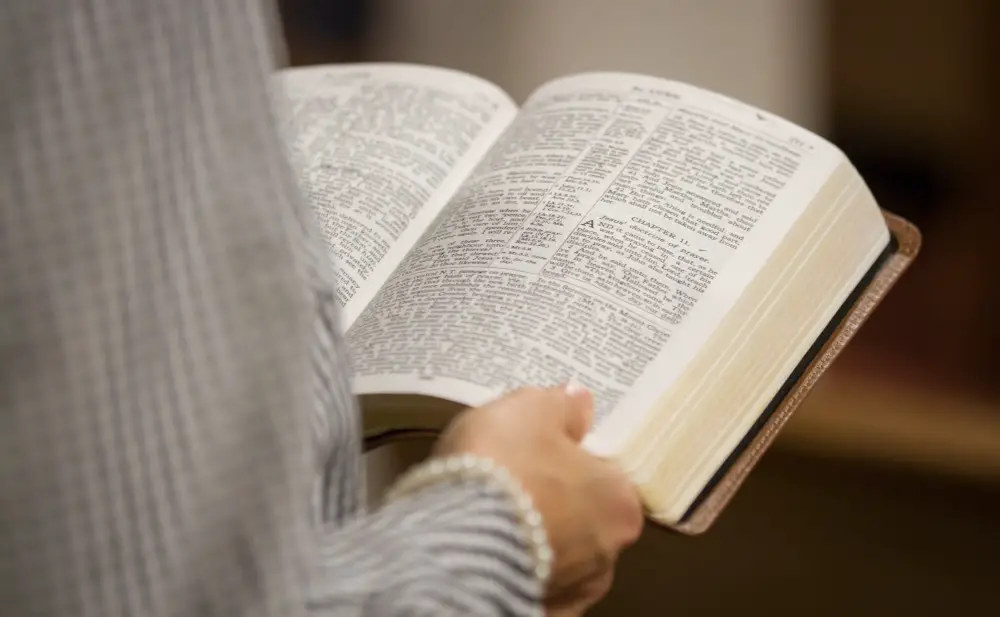It was a typical Sunday morning when Pastor Keith’s words struck a chord deep within me. “The spirit of man is the candle of the Lord,” he quoted from Proverbs 20:27, his voice resonating through the sanctuary.
As I sat there, I realized how many of us navigate life focusing solely on what we can see, touch, and measure, while overlooking our most powerful internal compass – spiritual discernment.
Key Takeaways
- Spiritual discernment is a gift from God that can be developed.
- Walking in the Spirit requires conscious choice and practice.
- Love for God and obedience are crucial for developing discernment.
- The Holy Spirit is our primary teacher in discernment.
- Regular practice strengthens our ability to discern.
What is Spiritual Discernment?

Spiritual discernment is the God-given ability to distinguish between truth and falsehood, good and evil, and recognize God’s leading in our lives. It’s like having a spiritual GPS that helps us navigate life’s complex decisions and challenges.
The Bible describes it as a gift of the Holy Spirit, essential for Christian living and spiritual growth.
Walking in the Spirit vs. Walking in the Flesh

Understanding the Two Paths
The Bible makes a clear distinction between walking in the Spirit and walking in the flesh. Romans 8:1 (KJV) tells us,
“There is therefore now no condemnation to them which are in Christ Jesus, who walk not after the flesh, but after the Spirit.”
Walking by faith is walking in the spirit, while walking by sight is walking in the flesh. This fundamental principle shapes our entire approach to spiritual discernment.
The Mind’s Critical Role
Your mind serves as a bridge between your physical and spiritual nature. Romans 8:6 (KJV) emphasizes this:
“To be carnally minded is death, but to be spiritually minded is life and peace.”
When we focus our minds on spiritual things:
- We become more sensitive to God’s leading.
- We develop clearer spiritual perception.
- We make decisions aligned with God’s will.
The Holy Spirit’s Role in Discernment

The Holy Spirit is our ultimate teacher in developing spiritual discernment. 1 Corinthians 2:10 (NKJV) states,
“But God has revealed them to us through His Spirit. For the Spirit searches all things, yes, the deep things of God.”
How God Communicates Through Our Spirit
God communicates with us through:
- The inner witness.
- Scripture illumination.
- Spiritual impressions.
- Godly counsel.
- Circumstances aligned with His Word.
Common Barriers to Spiritual Discernment

1. External Focus
Many Christians struggle with spiritual discernment because they’re constantly looking outward instead of inward. Remember,
“The Spirit of Man is the lamp of the Lord, searching all the innermost parts of the being.”
Proverbs 20:27 (ESV)
2. Unbelief and Skepticism
Doubt can block our spiritual receptivity. Jesus often said, “He who has ears to hear, let him hear.” This suggests that spiritual hearing requires active participation and belief.
3. Closed Hearts
Matthew 13:15 (ESV) warns about this condition:
“For this people’s heart has grown dull, and with their ears they can barely hear, and their eyes they have closed.”
Keys to Developing Spiritual Discernment

1. Acknowledge God in Everything
Proverbs 3:6 (NKJV) provides this wisdom:
“In all your ways acknowledge Him, and He shall direct your paths.”
2. Cultivate Love for God
Jesus taught in John 14:21 (NKJV):
“He who has My commandments and keeps them, it is he who loves Me. And he who loves Me will be loved by My Father, and I will love him and manifest Myself to him.”
3. Practice Obedience
Obedience isn’t just about following rules – it’s evidence of our love for God and opens the door to deeper spiritual discernment.
The Manifestation of God’s Presence

When we cultivate spiritual discernment:
- God becomes more real to us.
- We experience His presence more tangibly.
- We receive clearer direction.
- We make better decisions.
Practical Applications
Daily Decision Making
- Pause before major decisions.
- Seek God’s wisdom through prayer.
- Compare options against Scripture.
- Listen for the inner witness of the Spirit.
Handling Challenges
- Focus inward before reacting outward.
- Ask for divine wisdom.
- Trust God’s leading.
- Wait for peace before proceeding.
Conclusion
Spiritual discernment isn’t just a useful gift – it’s essential for navigating life as a believer. By understanding and applying these principles, we can grow in our ability to discern God’s will and make decisions that honor Him.
Remember, spiritual discernment is available to every believer who seeks it. James 1:5 (NKJV) promises,
“If any of you lacks wisdom, let him ask of God, who gives to all liberally and without reproach, and it will be given to him.”
Start your journey toward deeper spiritual discernment today by acknowledging God in all your ways and cultivating a loving, obedient relationship with Him.
The result will be a life guided by divine wisdom and marked by spiritual clarity.
Frequently Asked Questions
Q. What is the difference between spiritual discernment and common sense?
A. Common sense relies on natural wisdom and experience. On the other hand, spiritual discernment taps into divine wisdom and the leading of the Holy Spirit.
Q. How can I know if I’m hearing from God?
A. God’s leading always aligns with Scripture, brings peace, and often comes with confirmation through godly counsel or circumstances.
Q. Can anyone develop spiritual discernment?
A. Yes, any believer can develop spiritual discernment through prayer, Bible study, and practicing sensitivity to the Holy Spirit.
Q. How long does it take to develop spiritual discernment?
A. Discernment is a continuing process that grows with practice and maturity in faith.
Q. What role does the Bible play in spiritual discernment?
A. The Bible is our foundation for testing spiritual impressions and the primary tool for developing discernment.






